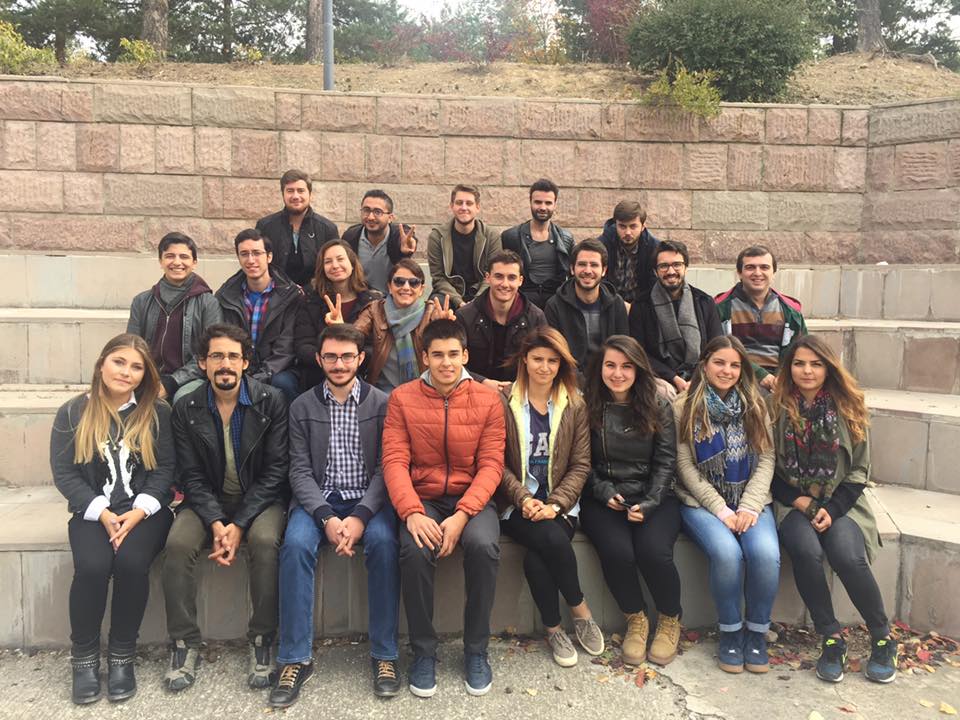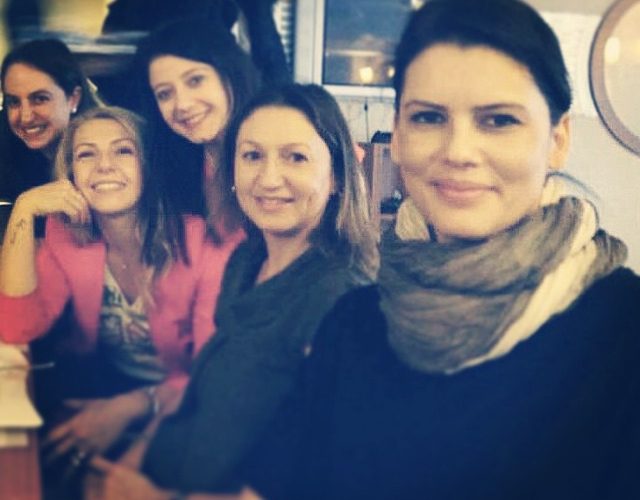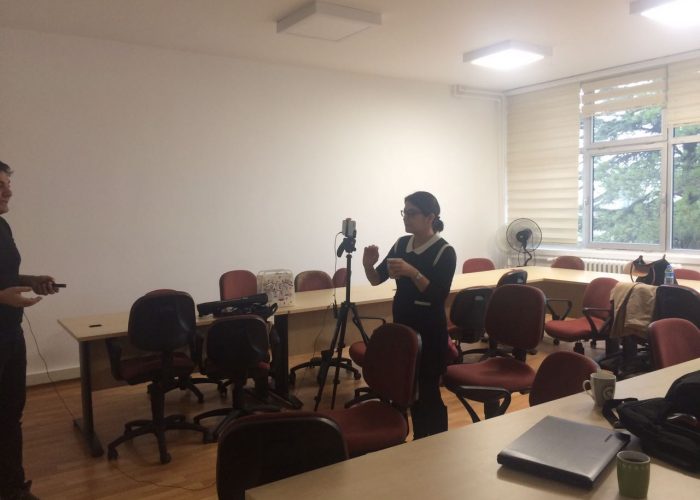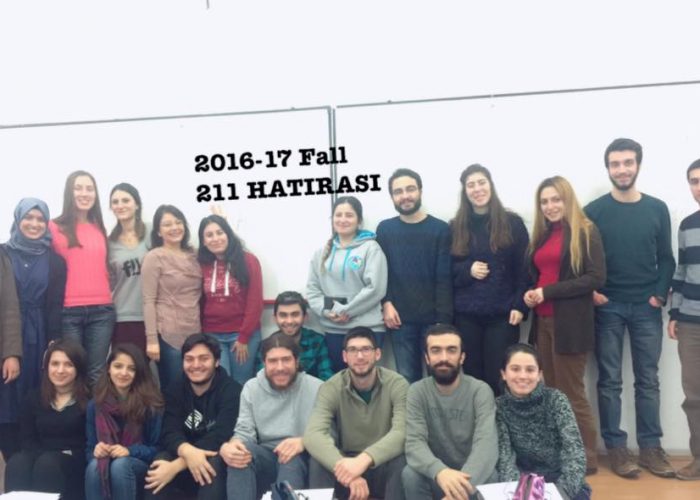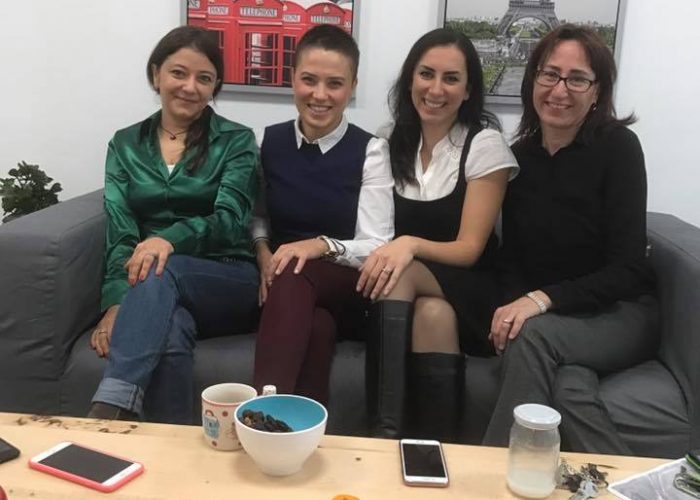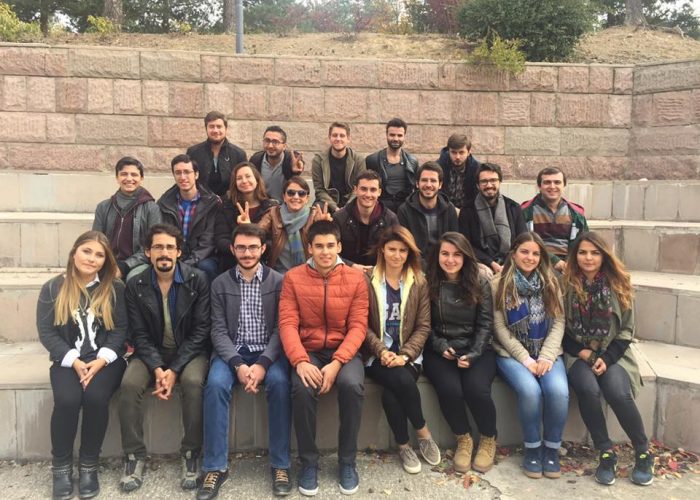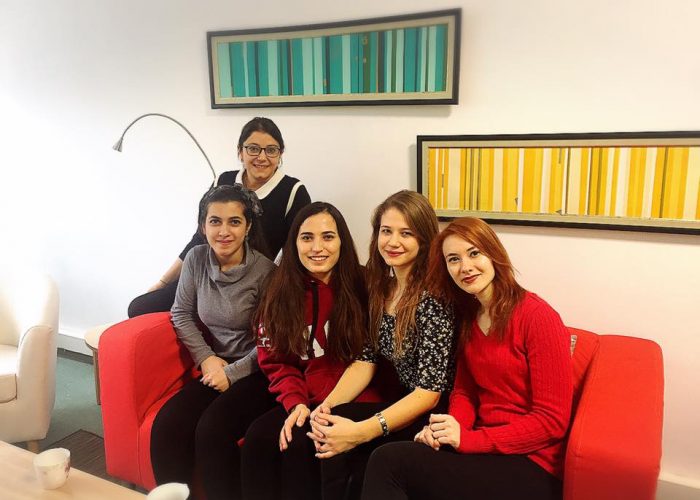 PDU: Seher, can you tell us a little bit about your academic background and interests, and any committee work or departmental duties so far?
PDU: Seher, can you tell us a little bit about your academic background and interests, and any committee work or departmental duties so far?
Seher: I graduated from METU’s Foreign Language Education Department in 1997. That same year, I started teaching at the same department as a research assistant and started my MA in ELT in the same department, as well. I continued my MA studies in ELT at Cleveland State University in 1997 and 1998, and got my degree from METU in 2000. In 2000, I started teaching at the MLD, and have taught 101, 102, 211 and 311 courses. Whichever course I taught, my main interest has always been in raising an awareness that language should be dealt with in contexts, considering every factor contributing to the meaning intended, including choice of words, choice of structure, tone or style, the addressee, the assumed background of the addressee and the relationship of these factors with each other. To that end, discourse analysis, is the method I adopted, to deal with any reading text in-depth. I also find it very useful to intentionally digress from the main text and use the content to elaborate on reading skills-related issues, such as when dictionaries work and when they do not work. That is to say, most of what I teach, I teach through intensive reading since no text is as simple as it appears to be.
PDU: What does teaching mean to you? If we asked you about your teaching metaphor, what would you say?
Seher: Teaching what we teach at the MLD, that is deriving meaning in language and producing language that would express ourselves precisely, is an ongoing and indispensible ‘discovery’ for me. When teaching, I find myself exploring the essence of being human, communicating via words, trying to comprehend the world, and the inner working mechanisms of the sociable creature that we are. Therefore, never have I felt that what I teach, or rather help analyze, is secondary in importance to any other course. On the contrary, I have always regarded my focus the prerequisite of any other content or skill one may aim to achieve in life.
PDU: What about your personal interests?
Seher: I have always been interested in philosophy, literature, music, and art. I’m a spatially oriented person; colors, designs and shapes bear a particular importance in my space. My interest in art reflects itself in my classroom material, naturally. I enjoy incorporating relevant visuals: drawings, videos, or mostly slides in what I teach. I play the piano and also sing in a choir, neither of which I can even begin to imagine giving up. Also, I have always been keen on welcoming practical uses of technology in my daily life, one recent example of which is my becoming a big fan of audio books. In a nutshell, I guess I enjoy life as long as there are arts, music, and literature in it.
PDU: Let’s learn more about you. What makes you different? Is there anything interesting about yourself that you’d like to share with us?
Seher: Yes, by now, even I, myself, can’t believe that I am even more motivated than I was when I first started teaching. Even when I’m sick, or rather tired, when I teach, it feels like a cure! I hope to be able to retire with the same enthusiasm and energy one day.
PDU: Can you share with us the most interesting thing that has ever happened to you at MLD? This might be something funny, something nostalgic or remarkable in any way.
Seher: I have had lots of interesting experiences, of course, but I’ll tell you one anecdote that I find the most extraordinary. 14 years ago, when I was just back from my maternity leave and was still feeling very fresh motherly compassion for all human kind thanks to having recently given birth, a student knocked on my door and very apologetically asked to leave for İzmir the next week since his mother was going to move and he was the only one to help her. He said his father passed away. He wasn’t going to be able to take my quiz. My heart felt for him and I was proud of having a responsible student who would go a long distance to help out his mother during the overwhelmingly busy academic year. I said he could take a make-up on his return. He was relieved. I was emotional but pleased with my response. Some two weeks later, during an office hour another student knocked on my door. He said he had a private matter to discuss with me. He said his mother was moving the next week, he was the only man in the family, and to help his mom, he had to go to İzmir!
